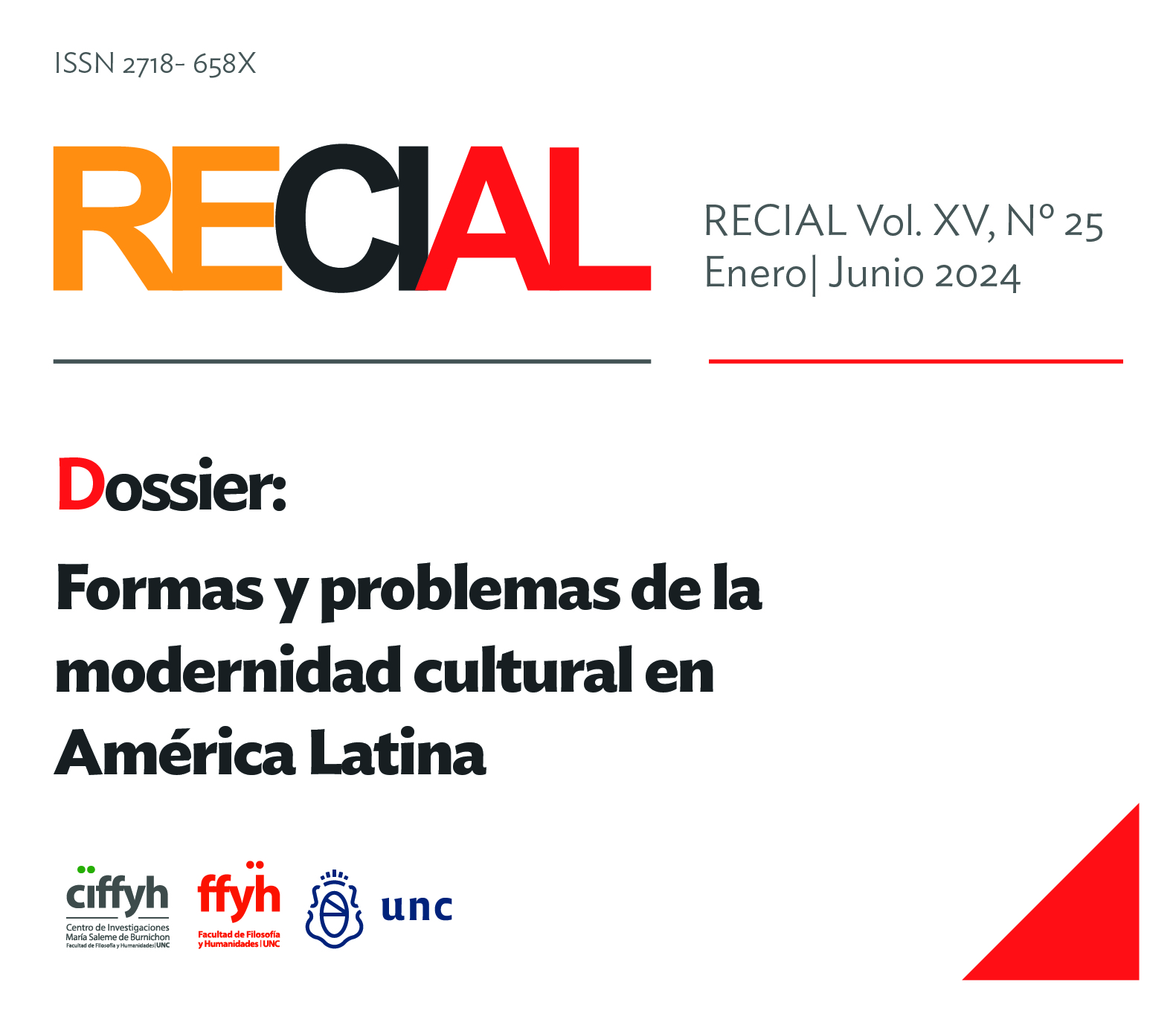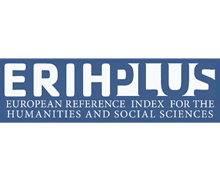ChatGPT and The End of History: A Theoretical Drafting of Its Perils and Promises from the Scope of Philology
DOI:
https://doi.org/10.53971/2718.658x.v15.n25.45626Keywords:
ChatGPT, models of artificial l, models of artificial language, philology, digital textualities, machine learningAbstract
Artificial language models are already a part of our world. Since the launch of the free-of-payment, public beta version of OpenAI.com’s ChatGPT in November 2022 the use of “chatbots” has become a world-widespread phenomenon and has begun to generate new —and evoke some old— reflections on what is the role of machines in some primarily human processes such as reading and writing. The main objective here is to analyse some of the promises and perils of this technology with theoretic and methodological instruments of Philology. In this paper we will address three problems around the use of the chatbot: the lack of traceability and hierarchy of its sources, the risk of total delegation of tasks of reading and writing, and the loss of subjective interaction with the text that this would imply in the processes of reading and writing. The perspectives used in this analysis will come from three different disciplines: education and literacy studies, philosophy, and foremost philology: from the analysis we will be able to show a few desirable changes that could prevent some of these perils.
Downloads
References
Aarseth, E. (1997). Cybertext. Perspectives on Ergodic Literature. Baltimore & London: John Hopkins University Press.
AlAfnan, M. A., Dishari, S., Jovic, M. y Lomidze, K. (2023). ChatGPT as an Educational Tool: Opportunities, Challenges, and Recommendations for Communication, Business Writing, and Composition Courses. Journal of Artificial Intelligence and Technology, 3(2), 60–68. https://doi.org/10.37965/jait.2023.0184
Berardi, F. (2017). Futurabilidad. La era de la impotencia y el horizonte de la posibilidad. Buenos Aires: Caja Negra.
Bonneau, J., Grondin-Robillard, L., Ménard, M.y Mondoux, A. (2022). Fighting the “System”: A Pilot Project on the Opacity of Algorithms in Political Communication. En A. Hepp, J. Jarke y L. Kramp (eds.), New Perspectives in Critical Data Studies. Transforming Communications. Studies in Cross-Media Research. Palgrave Macmillan. DOI: 10.1007/978-3-030-96180-0-5
Calle Álvarez, G. (2014). Las habilidades del pensamiento crítico durante la escritura digital en un ambiente de aprendizaje apoyado por herramientas de la web 2.0. Revista Encuentros, 12(1), 27-45.
Castillo, A. G. R., Silva, G. J. S., Arocutipa, J. P. F., Berríos, H. Q., Rodríguez, M. A. M., Reyes, G. Y., López, H. R. P., Reves, R. M. V., Rivera, H. V. H. y González, J. L. A. (2023). Effect of Chat GPT on the digitized learning process of university students. J. Namib. Studies. 2023, (33), 1-15.
Cerquiglini, B. (1999). In praise of the variant. John Hopkins University Press.
Chartier, R. (2018). La mano del autor y el espíritu del impresor. Siglos XVI al XVIII. Buenos Aires: Katz.
Chihaia, M. (2023). II. 2. Literatura y datos. Oportunidades y desafíos de la filología digital. En prensa.
Chomsky, N., Roberts, I. y Watumull, J. (2023). Noam Chomsky: the False Promise of ChatGPT. Ney York Times. Recuperado de https://www.nytimes.com/2023/03/08/opinion/noam-chomsky-chatgpt-ai.html
Cropley, D. (2023). Is artificial intelligence more creative than humans?: ChatGPT and the Divergent Association Task. Learning Letters, 2, 13. https://doi.org/10.59453/ll.v2.13
DePillis, L. y Lohr, S. (2023). Tinkering With ChatGPT, Workers Wonder: Will This Take My Job? New York Times. Recuperado de https://www.nytimes.com/2023/03/28/business/economy/jobs-ai-artificial-intelligence-chatgpt.html
Derrida, J. (1995). Mal de archivo. Una impresión freudiana. Madrid: Trotta.
Díaz, A. y Postay, V. (2023). Empiezan las clases. ¿Qué hacemos con la inteligencia artificial? Gloria y Loor. Recuperado de https://www.gloriayloor.com/empiezan-las-clases-que-hacemos-con-la-inteligencia-artificial/
Eco, H. (1984 [1968]). Apocalípticos e integrados. Barcelona: DeBolsillo.
España Palop, E. (2022). Teaching writing and discursive genres in the digital age: Results of a Writing Project. HUMAN REVIEW. International Humanities Review. Revista Internacional De Humanidades, 13(6), 1-9. https://doi.org/10.37467/revhuman.v11.4081
Fisher, M. (2009). Realismo capitalista. ¿No hay alternativa? Buenos Aires: Caja Negra.
Greenhouse, S. (2023). US experts warn AI likely to kill off jobs – and widen wealth inequality. The Guardian. Recuperado de https://www.theguardian.com/technology/2023/feb/08/ai-chatgpt-jobs-economy-inequality
Han, B-C. (2022). Infocracia. La digitalización y la crisis de la democracia. Madrid: Penguin Random House.
Hayles, C. (2008). Electronic Literature: New Horizons for the Literary. Notre Dame: Notre Dame University Press.
Huyssen, A. (2003). Present Pasts: Urban Palimpsests and the Politics of Memory. Stanford: Stanford University Press.
Islam, F. (2023). AI: Which jobs are most at risk from technology? BBC. Recuperado de https://www.bbc.com/news/business-65459827
Kocoń, J., Cichecki, I., Kaszyca, O., Kochanek, M., Szydło, D., Baran, J. y Kazienko, P. (2023). Chatgpt: Jack of All Trades, Master of None. SSRN. Recuperado de https://ssrn.com/abstract=4372889
Link, D. (2015). Suturas. Imágenes, escritura, vida. Buenos Aires: Eterna Cadencia.
Magro Mazo, C. (2018). Docentes para nuestra época. Cuadernos de pedagogía, (489), 63-71
Marcin, T. (2023). Microsoft's Bing AI chatbot has said a lot of weird things. Here's a list. Mashable. Recuperado de https://mashable.com/article/microsoft-bing-ai-chatbot-weird-scary-responses
McLuhan, M. y Powers, B. R. (1992). The Global Village: Transformations in World Life and Media in the 21st Century. Oxford: Oxford University Press.
Melamed, A. (2023). Por qué ChatGPT puede cambiar el futuro del trabajo. Infobae. Recuperado de https://www.infobae.com/tendencias/2023/03/08/por-que-chatgpt-puede-cambiar-el-mundo-del-trabajo/
Mendoza, J. J. (2019). Avatares de los textos en la época de la reproductibilidad digital. (Ensayo para una historia de las textualidades). BiblioGraphica, 2, 198-224.
Montenegro-Rueda, M., Fernández-Cerero, J., Fernández-Batanero, J. M. y López-Meneses, E. (2023). Impact of the Implementation of ChatGPT in Education: A Systematic Review. Computers, (12), 153. https://doi.org/10.3390/computers12080153
Park, Y. J. (2023). Let me tell you, ChatGPT-like AI will not change our world. Internet Policy Review. Recuperado de https://policyreview.info/articles/news/let-me-tell-you-chatgpt-ai-will-not-change-our-world/1694
Pérez Pozo, A., De la Rosa, J., Ros, S., González-Blanco, E., Hernández, L. y De Sisto, M. (2021). A bridge too far for artificial intelligence? Automatic classification of stanzas in Spanish poetry. Journal of the Association for Information Science and Technology, 73(2), 258–267. Recuperado de https://doi.org/10.1002/asi.24532
Pollock, S. (2016). Philology and Freedom. Philological Encounters, 1(1), 4-30.
Quevedo, L. (2016). Vivimos en la época de la digitalización de las relaciones. Entrevista a Roger Chartier. Nuevos papeles. Recuperado de https://www.nuevospapeles.com/nota/1128-roger-chartier-ldquo-vivimos-en-la-epoca-de-la-digitalizacion-de-las-relaciones-rdquo
Roose, K. (2023). Una conversación con el Chat de Bing me dejó profundamente perturbado. The New York Times. Recuperado de https://www.nytimes.com/es/2023/02/17/espanol/chatbot-bing-ia.html
Ryan, M-L. (1999). Cyberspace, Virtuality and the Text. Cyberspace, Textuality, Computer Technology and Literary Theory. Bloomington: Indiana University Press.
Said, E. W. (2004). The return to Philology. Humanism and Democratic Criticism. New York: Columbia University Press.
Sánchez, L. (2022). Los maestros del siglo XX ante el fetichismo de las nuevas tecnologías. Gloria y Loor. Recuperado de https://www.gloriayloor.com/los-maestros-del-siglo-xx-ante-el-fetichismo-de-las-nuevas-tecnologias/
Schöch, C. (2018). Zeta für die kontrastive Analyse literarischer Texte: Theorie, Implementierung, Fallstudie. En T. Bernhart, M. Willand, M., S. Richter, A. Albrecht (eds.), Quantitative Ansätze in den Literatur- und Geisteswissenschaften: Systematische und historische Perspektiven. Berlín & Boston: De Gruyter.
Scotto, V. (2022). Filología y arquetipo. Una historia política de la fijación de la tradición textual (Tesis doctoral). Ensenada: Universidad Nacional de La Plata. Recuperado de https://www.memoria.fahce.unlp.edu.ar/tesis/te.2324/te.2324.pdf
Secretaría de Innovación Tecnológica y Transformación Digital (SITD). (2022). El caso de Boti. Buenos Aires. Recuperado de https://buenosaires.gob.ar/innovacionytransformaciondigital/boti
Teel, Z. A., Wang, T. y Lund, B. (2023). ChatGPT conundrums: Probing plagiarism and parroting problems in higher education practices. College & Research Libraries News, 84(6), 205-208. Recuperado de https://ssrn.com/abstract=4480551
Thorp, H. H. (2023). ChatGPT is fun, but not an author. Recuperado de https://www.science.org/doi/10.1126/science.adg7879?cookieSet=1
Torres, A. (2023). ¿Qué posibilidades hay de que ChatGPT se quede con tu trabajo? La Nación. Recuperado de https://www.lanacion.com.ar/tecnologia/que-posibilidades-hay-de-que-chatgpt-se-quede-con-tu-trabajo-nid28042023/
Vincent, J. (2016). Twitter taught Microsoft’s AI chatbot to be a racist asshole in less than a day. The Verge. Recuperado de https://www.theverge.com/2016/3/24/11297050/tay-microsoft-chatbot-racist
Williams, R. (2019 [1977]). Marxismo y literatura. Buenos Aires: Las Cuarenta.
Wolf, F. A. (1808). Darstellung der Alterthumswissenschaft. Realschulbuchhandlung.
Zizek, S. (2011). Primero como tragedia después como farsa. Madrid: Akal.
Published
How to Cite
Issue
Section
License

This work is licensed under a Creative Commons Attribution-NonCommercial-ShareAlike 4.0 International License.
Aquellos/as autores/as que tengan publicaciones en esta revista, aceptan los términos siguientes:
- Los/as autores/as conservarán sus derechos de autor y garantizarán a la revista el derecho de primera publicación de su obra, el cuál estará simultáneamente sujeto a la Licencia de reconocimiento de Creative Commons que permite a terceros compartir la obra siempre que se indique su autor y su primera publicación esta revista.
- Los/as autores/as podrán adoptar otros acuerdos de licencia no exclusiva de distribución de la versión de la obra publicada (p. ej.: depositarla en un archivo telemático institucional o publicarla en un volumen monográfico) siempre que se indique la publicación inicial en esta revista.
- Se permite y recomienda a los/as autores/as difundir su obra a través de Internet (p. ej.: en archivos telemáticos institucionales o en su página web), luego de su publicación en la revista. (Véase El efecto del acceso abierto).























